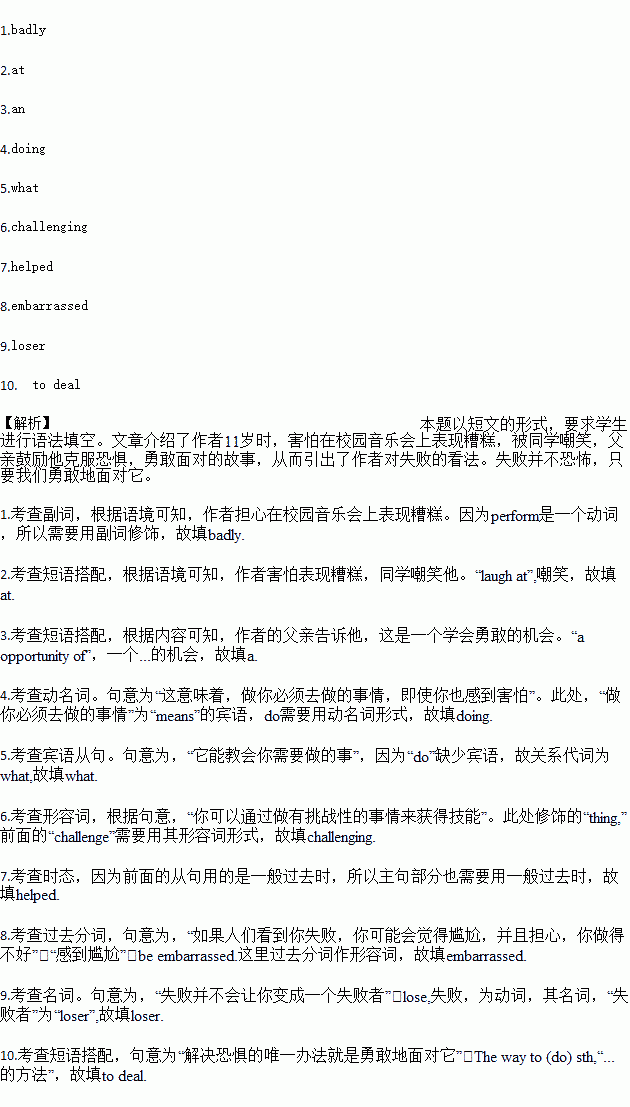题目内容
When I was 11, I spent days worrying about a school concert. I was terrified that I would perform 1. (bad) and that my classmates would laugh 2. me. I told my dad about my fear. He said I should regard it as 3. opportunity to be brave. Courage doesn’t mean not being afraid. It means 4. (do) what you need to do even when you are afraid.
Failure is part of our life. It can teach you 5. you need to do. You gain skills by doing 6. (challenge) things, even if they don’t work out. When I was learning English, mistakes sometimes 7. (help) me. When friends corrected my mistakes, they actually helped me remember the right words.
If people see you fail, you may be 8. (embarrass) and worry that you are not good enough. But failure doesn’t make you a 9. (lose). The only way 10. (deal) with the fear is to face it bravely. Every time you try something new, your fear will be easier to conquer.


 t sure how he made his driver angry. All he knows is that his driver-generated rating(评分) went way down and the wait for a Uber car became hours instead of minutes.
t sure how he made his driver angry. All he knows is that his driver-generated rating(评分) went way down and the wait for a Uber car became hours instead of minutes.